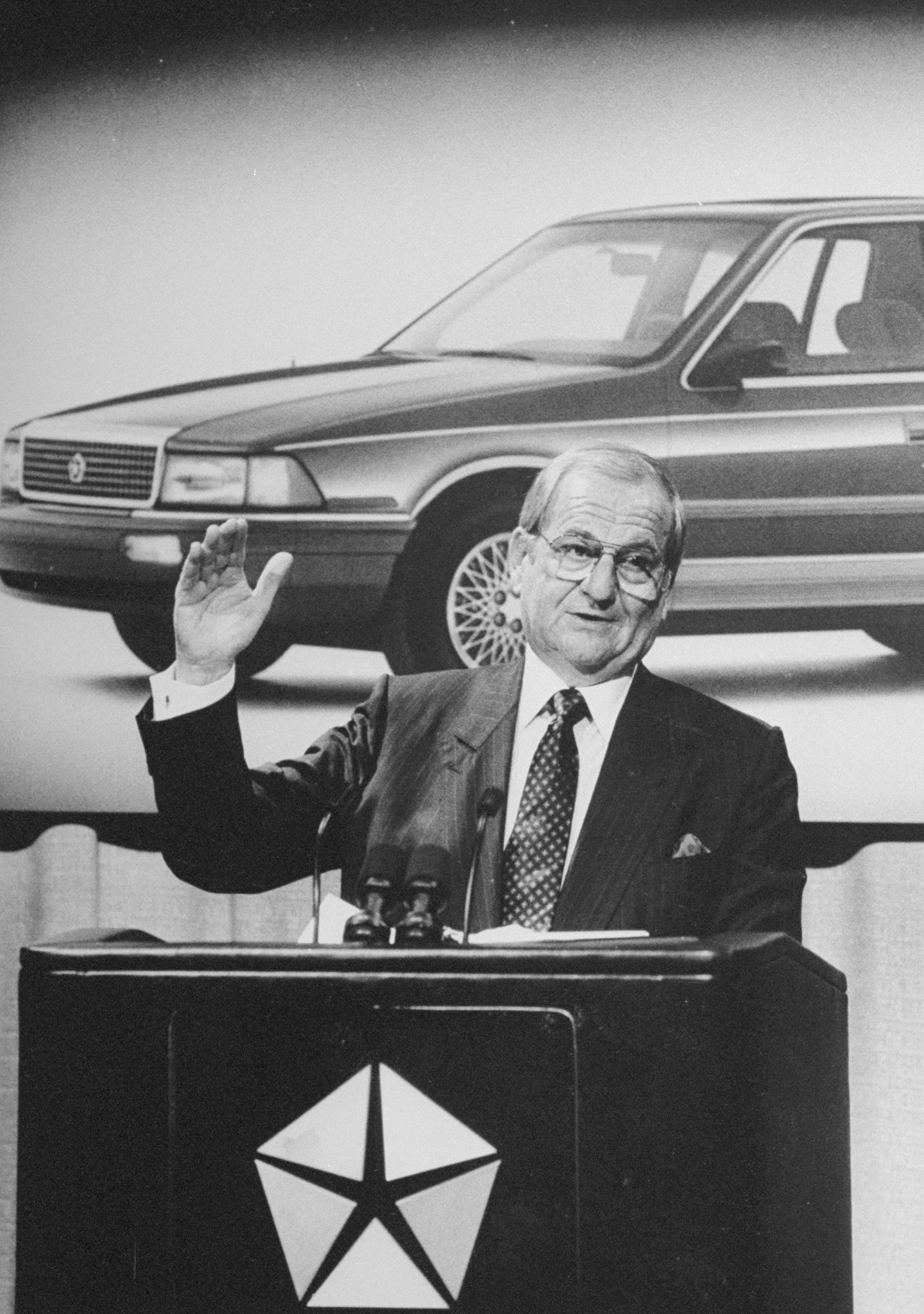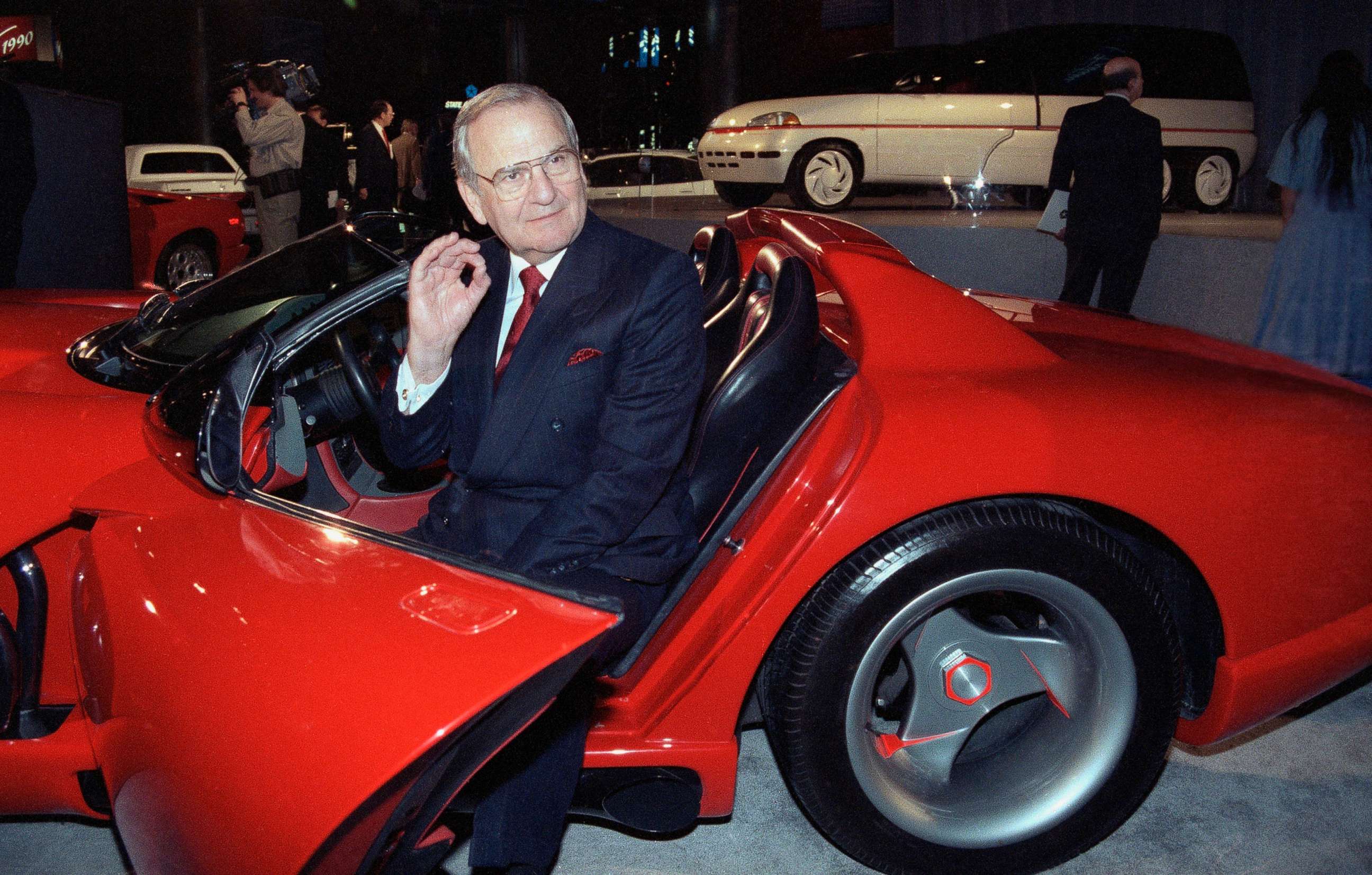As Lee Iacocca is laid to rest, an ABC News producer recalls a historic 'Nightline' appearance
The longtime auto executive appeared on an unusual "Nightline" episode in 1991.
Longtime auto executive Lee Iacocca will be buried in Troy, Michigan, on Wednesday following a funeral mass in nearby Bloomfield Hills. When the bulletins began filling up my inbox last week, reporting that Iacocca had died at 94, I was instantly transported back to one memorable afternoon in Washington in 1991.
At the time, I was in charge of wrangling guests for Ted Koppel's "Nightline." Weeks earlier, I had gotten a tip that the chief executives of the Big Three automakers would be meeting together at the White House, presumably to lobby President George H.W. Bush for federal help in turning around an industry that looked to be in a death spiral.
In the first three quarters of 1991, the top three American auto firms -- GM, Ford and Chrysler -- had posted a combined $4.9 billion in losses. Plants were closing and tens of thousands of auto jobs were being eliminated. Americans were buying more and more cars from Japan, and the only possible relief for U.S. automakers would come from the government.
If the three honchos from Detroit could come together to plead their case at the White House, I thought why not make a joint appearance on one of the most influential network television programs?
Easier said than done. When I asked reporters who regularly covered the auto industry about my chances of bringing the Big Three bosses on "Nightline," they assured me it would never happen.

That's all the incentive I needed to prove them wrong. So tapping into whatever persuasive skills I could muster, I approached each of the auto giants. But the corporate communications folks just wouldn't bite. It was clearly unorthodox for the Big Three to go to the White House on a joint mission to save their industry. But for three fierce industrial competitors to make a joint appearance on national television, that was something else again.
As their White House meeting drew closer, and as the idea of lobbying the consumer directly became more attractive, Ford finally agreed to the "Nightline" request. And then Chrysler followed suit. Two down, one to go. The only hope I had of having GM participate was personal lobbying. So I flew to Detroit and made my case to a room full of General Motors executives -- all men, as I recall -- seated around a long table. Shortly after I returned to Washington, GM signed on.
Since I didn't cover the auto industry, I didn't fully appreciate how unusual the scene was outside the ABC News bureau in downtown Washington that June 1991 afternoon when we taped the broadcast. I was waiting as three chauffeur-driven cars carrying the CEOs pulled up. GM Chairman Robert Stempel emerged from the Cadillac Fleetwood, Ford Chairman Harold "Red" Poling from the Lincoln Town Car and Chrysler Chairman Lee Iacocca from his Chrysler Imperial.
On the broadcast, the three men refuted the oft-heard claim that the American automakers were suffering because the quality of their cars was inferior to the imports. And they railed against the Japanese, whom Iacocca accused of unfairly dumping Toyota minivans into this country.
The next morning I was stunned to read USA Today's account of my coup. In a bit of hyperbole, the paper said I "might as well have been planning a superpower summit" in landing Stempel, Poling and Iacocca for the first-ever joint interview among the Big Three auto execs.
A few months later in a column in the Los Angeles Times, Iacocca described the one-hour Nightline as an "unusual, almost unnatural act." Iacocca explained why it hadn't been done up until then, saying that "Big Three executives have grown up with the fear that if they happen to pass each other on the street, the Justice Department will start an antitrust investigation."
Of the three auto executives who sat down with Koppel, Iacocca was the only true celebrity, having written a bestselling autobiography and having been instrumental in the creation of the Ford Mustang and Chrysler minivan. He saved Chrysler from bankruptcy and famously appeared in company TV ads, saying, "If you can find a better car, buy it." There was even talk of Iacocca running for president.
It's been nearly 30 years since that day when Iacocca, Poling and Stempel occupied ABC's green room. And as I recall, they easily made small talk and tried to act as though it was normal for three cutthroat competitors to spend time together.

Among the three executives who appeared on "Nightline" that evening, Iacocca was the last survivor. He said he liked to keep his distance from his competitors, but occasionally found himself alongside rivals away from the corporate boardroom, in the oddest of places.
Once, on a hunting trip in Canada, when Iacocca was president of Ford and Ed Cole was president of General Motors, the two men found themselves in the same duck blind.
"I guess the average person would logically think that if two guys shared the same duck blind, they must be close pals," Iacocca wrote. "We weren't. We were tough, friendly competitors. We spent most of our professional lives trying to bury each other. Whenever Ed stood up to shoot that day, I rooted for the ducks."
I only met Iacocca that one memorable day in 1991. But he was one of those rare figures I've encountered over the years who instantly commands the room he's in.
I'm guessing that one of Iacocca's oft-mentioned quotes likely proved true: "My father always used to say that when you die, if you've got five real friends, then you've had a great life."
Richard Harris was senior producer of "Nightline" with Ted Koppel until 2005.




